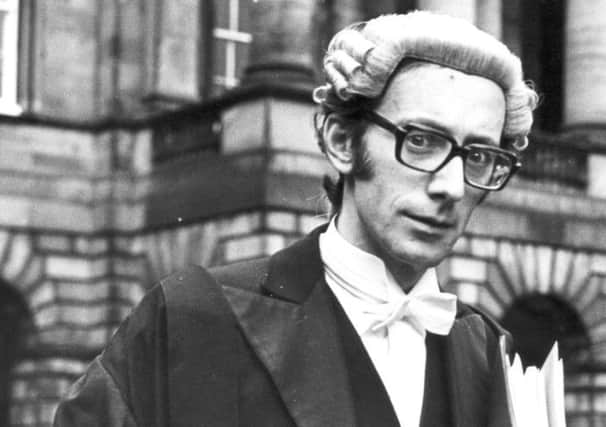Career profile: Sir Malcolm Rifkind


Born in Edinburgh, he was educated at the city’s George Heriot’s School and studied law at Edinburgh University. He became an advocate in 1969.
He first entered parliament in 1974 and was given his first front-bench post – as an opposition Scottish Office spokesman – the following year.
Advertisement
Hide AdAdvertisement
Hide AdWhen the Tories won power in 1979, he was steadily promoted up the ministerial ladder by Margaret Thatcher, joining the Cabinet in 1986 as Scottish secretary.
That was followed by stints at transport and defence.
As John Major’s defence secretary, Sir Malcolm impressed cabinet colleagues and service chiefs alike with his adroit handling of the most fundamental shake-up of the military in decades.
His studious appearance belied a steely will and a fiercely combative streak, which, combined with great persuasive powers, successfully kept military chiefs on-side while fighting off even greater cuts demanded by the Treasury.
It was a close-run thing and there remained many grumbles among senior military officers about their ability to achieve all cost savings while continuing to carry out all their roles.
But it was a testament to Sir Malcolm’s diplomatic and political skills that he was able to slash the size of the military by almost a third without a flood of potentially damaging resignations from service chiefs.
Promoted to foreign secretary in the final years of the Major administration, he faced possibly even bigger challenges including civil war in the Balkans and final negotiations with China over the transfer of Hong Kong.
But the appointment also plunged him into the centre of the bitter Tory civil war over Europe and the single currency.
Two years later he was out of parliament, losing his Edinburgh Pentlands seat as the Tories were swept away in Scotland in Labour’s 1997 landslide. He unsuccessfully fought to win it back in 2001 and was forced to head south of the Border instead, returning to parliament in the 2005 election after standing for the Tory safe seat of Kensington and Chelsea.
Advertisement
Hide AdAdvertisement
Hide AdMade shadow work and pensions secretary, he was one of the first to throw his hat into the ring after Michael Howard announced his intention to stand down as party leader.
However, his eight years away from Westminster no doubt counted against him, and after his campaign failed to take off, he withdrew from the race before the first ballot of MPs.
His track record running the Ministry of Defence and Foreign Office made him the perfect candidate for chairman of the parliamentary intelligence and security committee.
In that position he frequently found himself having to defend the security services in the wake of revelations by Edward Snowden about snooping.
He did so with typical eloquence and force.
But with the lobbying controversy now raging, his distinguished political career is in danger of being overshadowed by cash-for-access allegations and the subsequent remarks he made about MPs having to “simply accept a salary of £60,000”.
FOLLOW US
SCOTSMAN TABLET AND MOBILE APPS